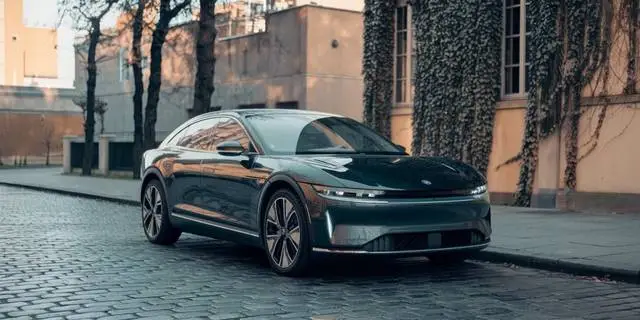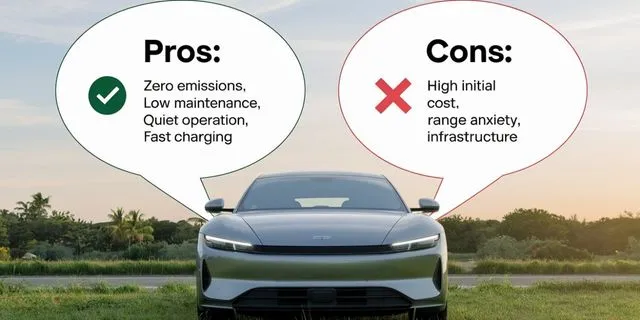Electric cars (EVs) are transforming the way we think about driving. Understanding the pros and cons of electric cars is essential before deciding if they are the right choice for your lifestyle.
These vehicles are not just about getting from point A to point B – they symbolize innovation, sustainability, and a step toward a cleaner future. As the world shifts to greener energy sources, electric cars have become a hot topic in the automotive industry.

Electric cars (EVs) are rapidly becoming a popular choice for eco-conscious and tech-savvy drivers. But are they the right fit for you? In this article, we’ll break down the advantages and disadvantages of EVs to help you make an informed decision.
Pros of Electric Cars
1. Eco-Friendly Driving
Electric cars produce zero tailpipe emissions, significantly reducing air pollution. By choosing an EV, you’re contributing to a cleaner, greener planet.
2. Cost Savings on Fuel
Electricity is often cheaper than gasoline. Charging an EV can cost much less than filling up a gas tank, especially if you charge at home during off-peak hours.
3. Low Maintenance Costs
EVs have fewer moving parts compared to gas-powered cars. There’s no need for oil changes, and components like brakes tend to last longer due to regenerative braking systems.

4. Smooth and Quiet Ride
Electric cars offer instant torque for fast acceleration and a quiet driving experience, making them ideal for city commutes.
5. Government Incentives
Many governments provide tax credits, rebates, and incentives for purchasing EVs, making them more affordable upfront.
Cons of Electric Cars
1. Higher Initial Costs
Electric cars are often more expensive than their gas counterparts, even with incentives. However, long-term savings on fuel and maintenance can offset this.
2. Limited Driving Range
Most EVs have a range of 150-300 miles on a full charge. Long road trips may require careful planning and multiple charging stops.
3. Charging Infrastructure
While public charging stations are growing, they’re still less common than gas stations. This can be inconvenient if you don’t have a home charger.
4. Longer “Refueling” Times
Charging an EV takes longer than refueling a gas car. Fast chargers can provide 80% charge in 30 minutes, but home chargers may take several hours.
5. Environmental Impact of Batteries
EV batteries require rare earth materials, and their production can have significant environmental impacts. Recycling old batteries is also a developing challenge.
Quick Comparison of Pros and Cons
| Pros | Cons |
|---|---|
| Zero emissions | Higher initial cost |
| Lower fuel costs | Limited range |
| Minimal maintenance | Charging infrastructure limitations |
| Smooth, quiet performance | Long charging times |
| Tax incentives | Environmental concerns about batteries |
Are Electric Cars Worth It?
Electric cars are a great choice for environmentally conscious drivers and those looking to save on fuel costs. However, they may not yet be the perfect fit for everyone, especially if you frequently take long road trips or lack access to reliable charging.
As the EV market evolves, with better range, faster charging, and more affordable options, the future looks promising.
FAQ:
Are electric cars cheaper to maintain?
How long does an EV battery last?
How long does it take to charge an electric car?
– Level 1 Charger: 8-12 hours for a full charge (using a standard home outlet).
– Level 2 Charger: 4-6 hours for a full charge (installed home or public chargers).
– DC Fast Charger: 30 minutes for up to 80% charge (found at public stations).
Can electric cars perform well in cold weather?
However, most modern EVs have pre-conditioning features to optimize performance in winter conditions.
Are electric cars really better for the environment?
How do EV batteries impact the environment?
Most EV batteries are also designed for second-life uses, like energy storage, before recycling.
READ MORE:
- Step By Step Guide Before Switching to an EV
- Top 5 Benefits of Installing a Home EV Charger
- Top 5 Electric Cars for 2024: Features, Range, and Pricing